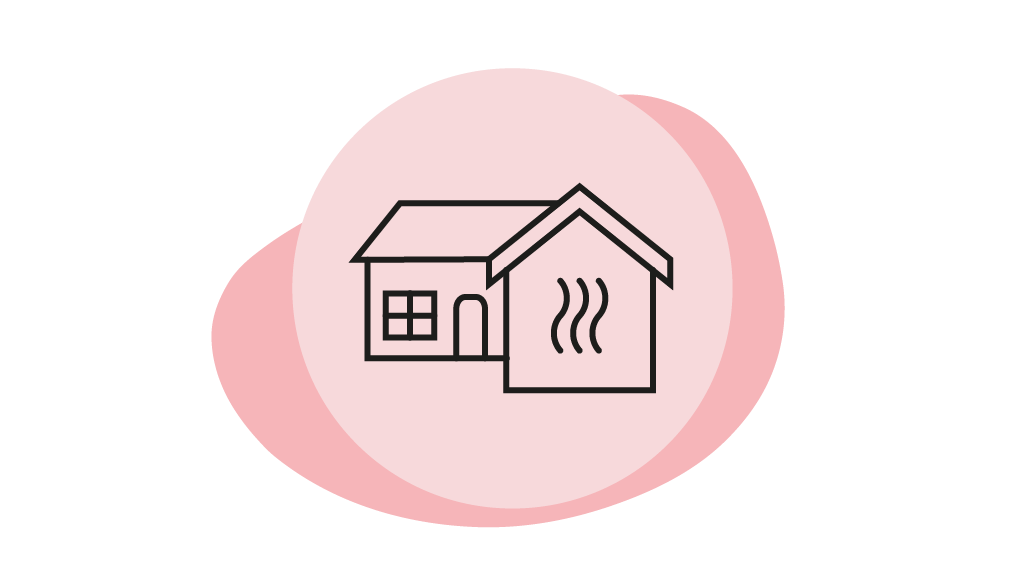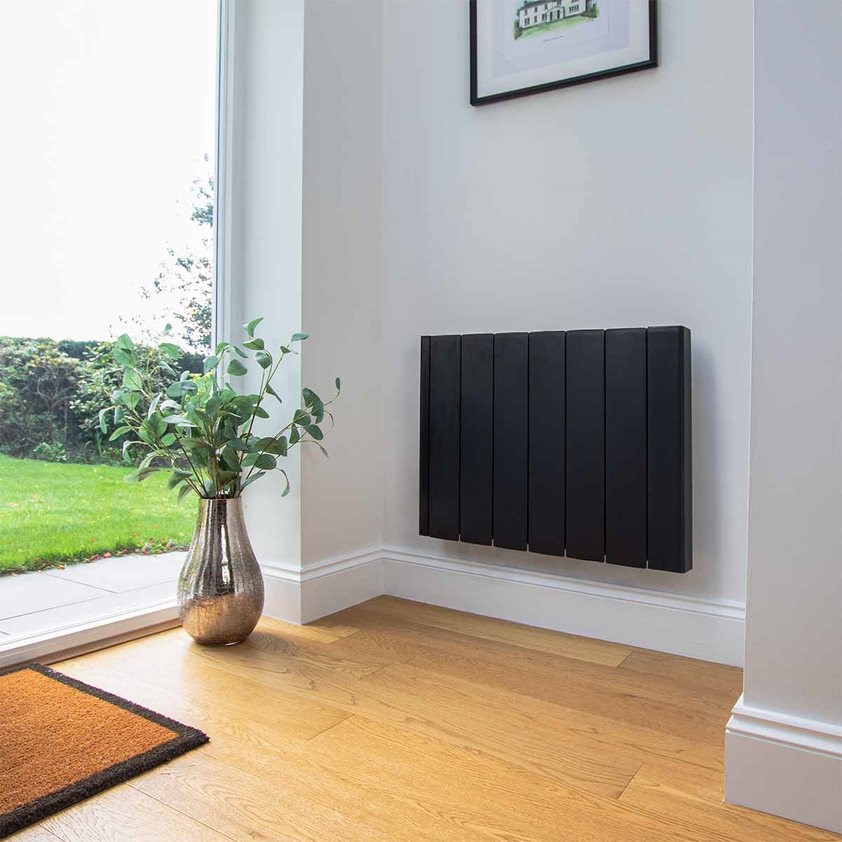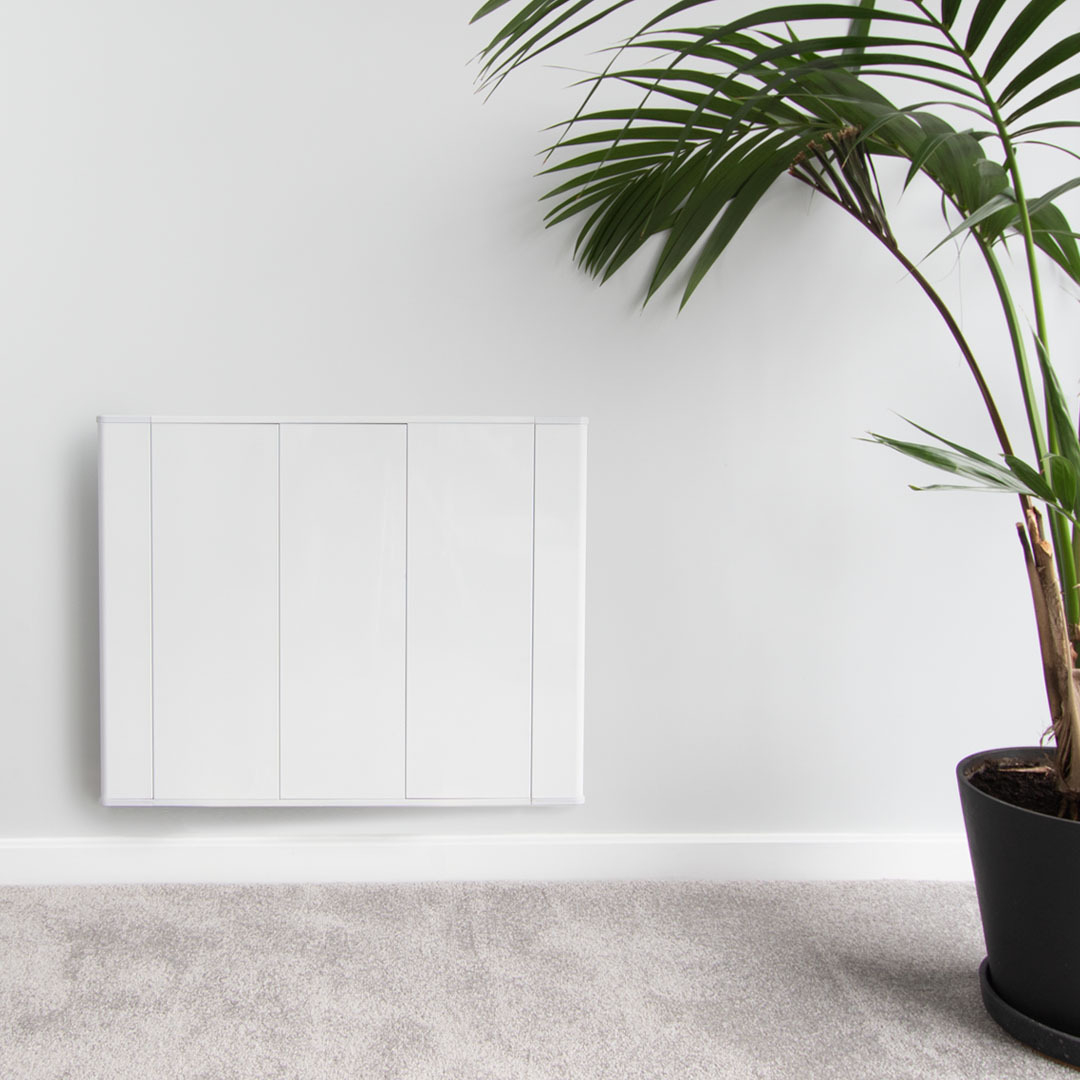

Last updated: June 2023
Working from home is an adjustment many of us have had to make over the last few years. Wherever you tend to get stuck into your daily tasks, be it at the makeshift office in the garden shed, or a custom-built loft conversion made for the job, assuring your work environment is comfortably warm is crucial for productivity. During winter, this is even more of a priority, with those chilly draughts becoming much more apparent once the weather turns. Winter-proofing your home office with electric heating is much simpler than you think - and we’re here to show you how.
Home offices: why electric heating is the perfect fit
Before we jump in, let’s briefly explore some universal reasons why electric heating and home offices go hand in hand.
No plumbing necessary


Many electric heaters are plug-in-and-go, so an electrical supply is all that’s required. This is particularly advantageous if your home office is outside, as you won’t need to spend a fortune extending your plumbing.
Superior versatility


With a broad range of styles and designs, there’s an electric heater to suit every office interior, even down to whether you’d prefer a wall-mounted or freestanding option, representing the high level of versatility offered with electric heating.
Independent control


For areas like home offices, which tend to be used for certain concentrated periods throughout the day, the independence of electric heating is ideal. Turn your office heater on or off without disrupting the temperature in the rest of the house with ease.
100% efficiency


With no boiler involved, there’s no middleman with electric heating. Every watt of energy taken from the wall is converted into usable heat, for ultimate energy and cost efficiency, so keeping your home office warm won’t cost you an arm and a leg.
Electric radiators: for long-lasting, manageable comfort
Electric radiators are a highly efficient and effective heating solution, as they use a combination of both convected and radiated heat. Through convection, the air volume in the room is heated, which quickly raises the ambient temperature. Radiation on the other hand, provides deeper warmth that is easily absorbed by surrounding surfaces and people. The dual nature of their heating results in lasting, on-demand warmth.
What makes them great for home offices?
Their high efficiency makes electric radiators suitable for a wide range of applications, including home offices. If the conservatory you crunch numbers in is prone to a chill, an electric radiator will offset that cold air whilst keeping you warm on a deeper level through its radiation. They are easily controllable, with many offering 24/7 programming - an ideal choice for areas which don’t require around-the-clock heating, such as home offices.
Product spotlight: Ecostrad iQ Ceramic
One of our bestsellers for a reason, the iQ Ceramic combines all the great benefits of electric radiators into one sleek package. Its ceramic core holds warmth for longer, supplying heat even after the appliance has been switched off from the wall, for superior efficiency. The iQ’s controllability is simple and adaptable, with a clear LCD screen for manual programming, and WiFi compatibility for far-reaching control via the intuitive Ecostrad Ecosystem app. Adjusting its temperature or setting a weekly schedule is easy, and when put into motion sensor mode, the radiator silently detects when a room is being used and adjusts its temperature automatically - for effortless control.
From fast-acting and effective warmth to zero maintenance, check out this video to learn why electric radiators are taking UK homes by storm.
Infrared panels: for radiant, soothing warmth
Infrared panels are discreet, angular units that, like electric radiators, heat through a form of radiation called infrared. Infrared is very similar to the type of heat the sun emits, and in the same way you can still feel its gentle rays on a frosty walk in January, infrared warmth is felt despite the ambient air temperature. This is because it travels in a wave, warming objects and people directly, rather than heating the air through convection. It is not lost or affected by the temperature of surrounding air, so is perfect for places prone to a chilly draught or two.
What makes them great for home offices?
Infrared panels will suit any home office, particularly those with high ceilings or that struggle to retain a steady level of heat. It is even absorbed by walls – a great benefit if your home office is in the extremities of your property, like a summerhouse, a conservatory, or a loft, and as such is more susceptible to developing mould. Their slimline and shallow appearance also makes them a natural choice if your office is on the smaller side. If you decide to go for a wall-mounted attachment, the unit will make use of redundant wall space without protruding outwards into the room, whilst a freestanding unit will maximise its portability.
Product spotlight: Herschel Select Under Desk Heating Panel
The Herschel Select Under Desk Heating Panel is specifically designed to keep feet and legs cosy under desks. The heater comes with easily attachable feet for handy mobility, and boasts a simple plug-in installation, so it is up and running in no time. WiFi and voice control ready, the panel is controllable from afar, alongside a simple on/off foot pedal for hands-free management when next to the unit. Providing long lasting, radiant warmth, the Herschel Select mimics the heat your body naturally produces, creating a work environment that’s comfortably warm, not stiflingly hot.
We’re providing an in-depth rundown of infrared heating. What is it, what are its benefits, and how much do infrared heaters cost to run? We’re here to clue you in.
Panel heaters: for quick bursts of heat
Panel heaters have a similar look to electric radiators, but the way they heat makes them different, as they exclusively use convection. A responsive x-bar element inside the unit warms the naturally circulating air in a room, speedily enveloping users in a blanket of comforting warmth.
What makes them great for home offices?
Panel heaters specifically suit areas used on an infrequent basis that require a supplementary, and not primary, heating solution. This makes them ideal for home offices, particularly those that already have an existing form of heating or are not used regularly enough to need a more permanent option. They are a low-cost, practical solution with modest aesthetics to match most interior design schemes.
Product spotlight: Ecostrad iQ Plus
The Ecostrad iQ Plus goes above and beyond standard panel heaters with its slimline, portable build and WiFi compatibility. Fitted with a precision thermostat accurate to ±0.5 °C, the heater will automatically correct its temperature should it ever deviate from your set level, even by as little as half a degree. The iQ Plus also has 24/7 programming and voice control, so if you happen to change your routine or want to set a command without taking your fingers off the keyboard, your heating will seamlessly follow suit.
Let’s take a deep dive into what makes electric radiators and panel heaters similar, different, and which one is perfect for your home if you’re weighing up your options.
Find your ideal home office heating solution today
Despite the challenges home offices can pose in terms of keeping a steady and comfortable temperature, electric heating offers an array of remedies. From durable electric radiators to versatile panel heaters, our range comprises various colourways, wattages, sizes and even orientations of electric heater, so maximising comfort and productivity in your home office doesn’t need to be a hard day’s work.
Key learnings
- Electric heating is the perfect fit for home offices because of its versatility, easy installation and ability to control it separately from the rest of your home heating.
- Electric radiators are a great choice because of their high efficiency, long-lasting warmth and superior controllability. They’re suitable for pretty much every type of space.
- Infrared panels are also aptly suited – they’re particularly effective if your office has a high ceiling or struggles to retain heat. Plus, as they heat on a deeper level they’re great for spots that are more susceptible to mould, like lofts and conservatories.
- Electric panel heaters suit areas used on an infrequent basis that require a supplementary heating solution. They’re a low-cost option if you just need temperatures topping up.








